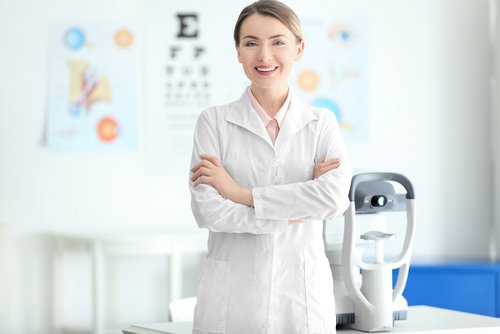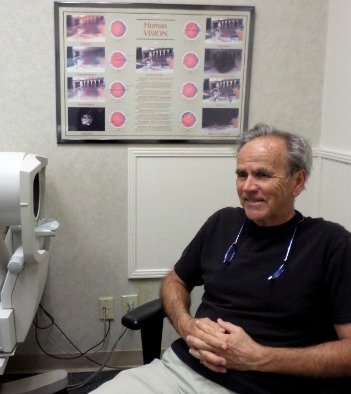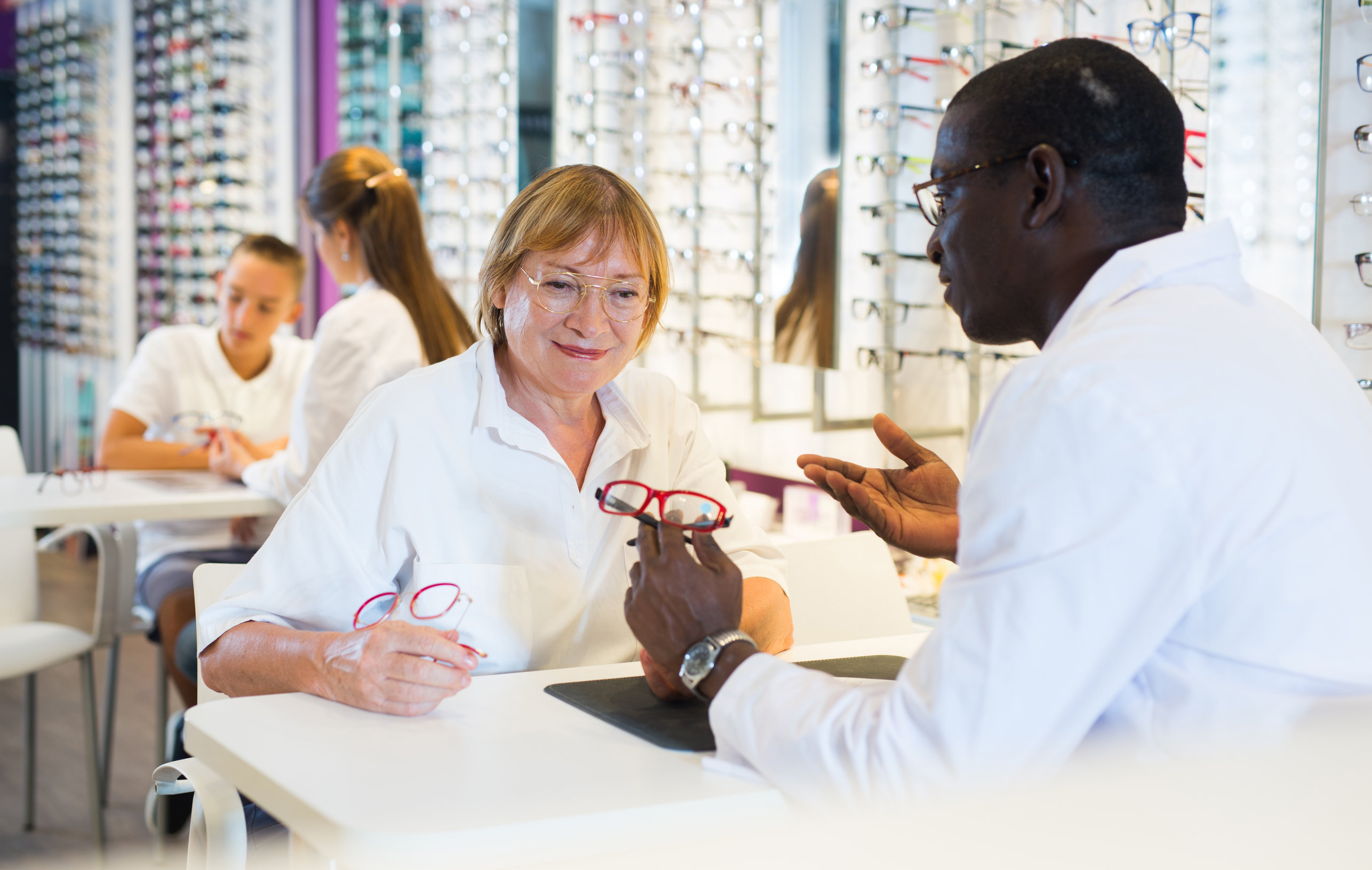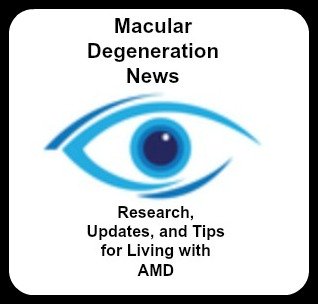Why Get a Macular Degeneration Specialist
A macular degeneration specialist can be one of many different kinds of eye health professionals, each one serving a unique purpose in the treatment of and adaptation to your vision loss.
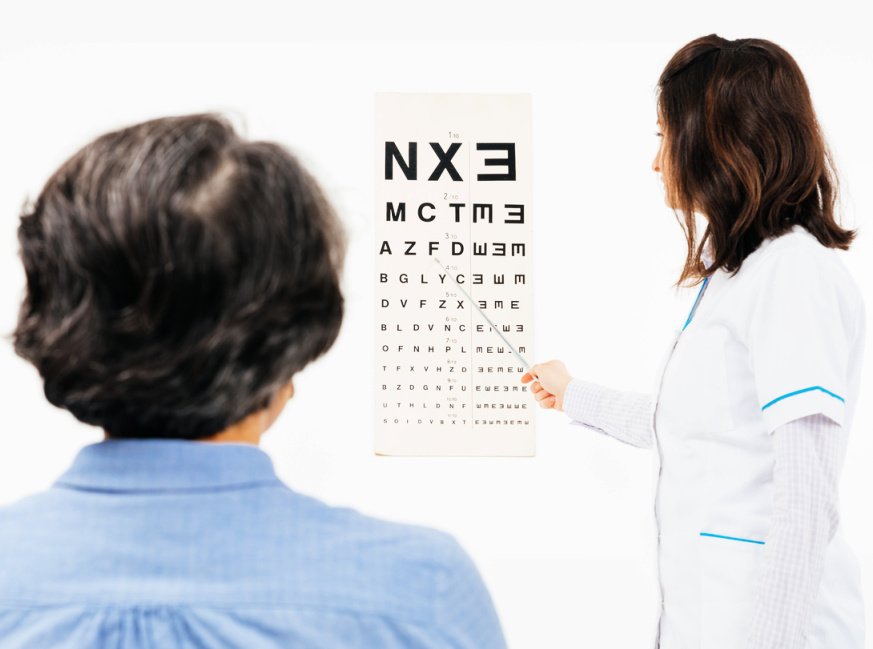
Some links in the following sections are eBay or Amazon affiliate links, which means that if you purchase a product through them I receive a small commission. There is no extra cost to you. Find more details on this page.
From retina specialists to orientation and mobility specialists, there are many well trained individuals who can assist you with diagnois and treatment of macular degeneration or teach you to maximize your usable vision with the help of vision aids.
Did you know that you CAN continue to do the many activities you have always enjoyed like reading, watching TV, and cooking? Most likely you will need the help of a low vision specialist.
A low vision specialist can help you:
learn to use your peripheral vision,
assist you in adapting your home with better lighting and other aids, and
fit you with the most appropriate glasses, magnifiers, and other low vision devices.
First it is important for you to understand the differences in education, training, credentials and roles of those who are caring for your eyes.
Retina Doctor
Ophthalmologists are medical doctors who specialize in all aspects of eye health. If you have been diagnosed with macular degeneration it is important to see a retina doctor - he is an M.D. who specializes in diseases of the retina, including macular degeneration, maculopathy, and macular edema.
Ophthalmologists responsibilities are to:
√ Provide eye exams
√ Prescribe medications
√ Perform surgical procedures, i.e. laser surgery and lens replacement
Ophthalmologists diagnose and manage eye diseases and treat and repair eye injuries.
Bringing a list of questions for your doctor will help you be prepared before you go to see your eye specialist.
Always bring someone with you to your appointment who will listen with you and write down what the physician is saying.
It is hard for anyone to remember everything they are told, especially when you are newly diagnosed. Have your questions written down and bring them with you to discuss with the physician.
To get a list of questions to ask your eye doctor and to learn more about the credentials and reasons for having a retina doctor click here:
Low Vision Optometrist
A macular degeneration specialist can also be an optometrist who is specially trained in assisting those with low vision.
They help by assessing visual needs and making recommendations for low vision aids, lighting, magnifiers and glasses.
Unlike a retina specialist, a low vision optometrist can help you function at your best with your vision loss. They can prescribe and train you in the use of high powered lenses and magnifiers.
To learn more about their services and credentials click here:
Opticians
Opticians responsibilities are to:
√ Fit eyeglasses and contact lenses, following prescriptions written by optometrists or ophthalmologists.
√ Measure patients’ eyes, recommend eyeglass frames and lenses
based on the patient’s needs and can reshape eyeglass frames to fit
properly. When licensed to do so, opticians also can fit contact lenses
√ They are licensed (required in twenty-one states) after they have earned either an associate opticianry degree (one- to two-year program), or after they have apprenticed for at least two years.
√ They must pass a licensing examination and some apply to the American Board of Opticianry for certification. Certification is awarded after passing an exam, and must be renewed every three years. In some states, opticians must pass the National Contact Lens Examination to dispense contact lenses.
Opticians Credentials:
√ Earned either an associate opticianry degree (one - to two-year program) or after a 2 year apprenticeship
√ They are licensed (required in twenty-one states)
√ They must pass a licensing examination and some apply to the American Board of Opticianry for certification
Certification is awarded after passing an exam, and must be renewed every three years. In some states, opticians must pass the National Contact Lens Examination to dispense contact lenses.
Low Vision Occupational Therapy
Low vision occupational therapy helps the patient with macular degeneration to maintain their independence and safety in their own homes.
The therapist comes into the home to make an assessment and recommendations to help the patient with the daily tasks of living.
They can assist patients in a way that allows them to continue to live in their own home and to help the patient function at their best by making home modification recommendations and suggestions.
Click here to learn how to benefit from this service:
Low Vision Occupational Therapy
Orientation and Mobility
"Orientation and Mobility (O&M) is special training to help a person with a vision impairment get from one place to another as safely, efficiently, and independently as possible."
Andrea Story, Parent-Infant Educator SESA
An Orientation and Mobility Specialist can:
1) Evaluate the skills (not your vision) you use to get around and
2) Teach you methods of getting around your home, office, church, grocery stores, etc.
The O&M specialist begins with an assessment of the individual's visual and physical abilities as well as their motivation. It includes training with the use of low vision aids, canes and guide dogs.
You will be taught how to:
√ Make your home safe
√ Climb stairs safely
√ Avoid falls & injuries
√ Cross streets
√ Use public transportation like buses or subways
To learn more how someone with macular degeneration can benefit from this type of training:
Low Vision Services - A Patient's Perspective
Dan Roberts is the recipient of the 2004 Distinguished Service Award presented by the American Optometric Association Low Vision Rehabilitation Section.
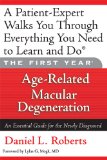
He is also the author of The First Year: Age-Related Macular Degeneration: An Essential Guide for the Newly Diagnosed
It is no surprise that he continues to generously share with others what low vision services has meant to him and how he has benefited from them. Check out our e-interview with Dan to find out how low vision rehab made a difference in his life.
Low Vision Services - Interview with Dan Roberts
Finding and utilizing macular degeneration specialists will provide you with not only treatment options but with hope and optimism for the future as you learn about the many new low vision technologies that are available that will allow you to continue reading, see the faces of your grandchild or enjoy your favorite TV shows.
Go from Macular Degeneration Specialist to WebRN Macular Degeneration Home
√ Prevention of Macular Degeneration?
√ Tips for Daily Living?
√ Food Suggestions for a Macular Degeneration Diet?
√ Ideas on Visual Aids to Maximize your Sight?
If you said "yes" to any of the above, sign up for the monthly Macular Degeneration News.
